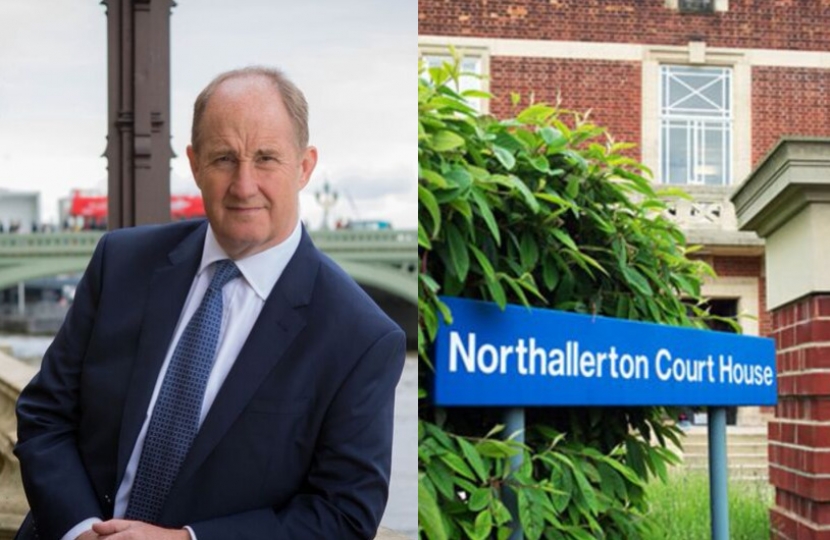
Today’s Westminster Hall debate gave me the opportunity to raise my concerns over the proposed closure of Northallerton Magistrates’ Court.
Closing magistrates’ courts in rural areas presents many challenges because of the sheer distances involved. Nationally, 20 per cent of the population, 25 per cent of businesses and 3.4 million jobs, live, operate and are located in rural areas; this amounts to 16.5 per cent of the economy. Thirsk and Malton is one of the largest and most rural constituencies in the UK.
It would mean, as one constituent needing a health appointment told me, that people might have to travel and stay overnight just to be able to attend a consultation. If Northallerton Magistrates’ Court is to close, it could have a similarly profound effect on people’s access to justice.
I have a number of concerns. The average age of my constituents is older than constituents living in urban areas. This coupled with limited public transport means that we have far more bus passes than we have busses. If Northallerton was to close, it would increase journey times significantly. A journey from Rosedale to York, for instance, requires three different busses and takes four hours. As some magistrates have suggested some defendants are vulnerable and suffer from mental health issues so closing the magistrates’ court at Northallerton could make it more difficult for these people to access justice. This would be wrong.
Then there’s the effect on police time as they are required to drive to courts as well. I have discussed this with the Police and Crime Commissioner, Julia Mulligan. Already closing custody suites in Northallerton means the police have to drive to Harrogate, which takes at least an hour. We are at risk of creating a false economy by transferring costs from one budget to another, that is to say from the Ministry of Justice to the Police.
There’s also the journey times for witnesses and magistrates. Fewer prosecutions would be brought forward if witnesses are unable to attend and we must not make it less attractive for magistrates who would have to travel miles from their homes, outside of my constituency.
I have met with the Parliamentary Under Secretary of State at the Ministry of Justice, Lucy Frazer QC MP, seeking assurances these considerations would be taken into account. I have suggested technology might offer a solution, although we must evaluate technology to ensure that it delivers suitable access to justice in rural areas. The Ministry of Justice is happy to pursue options for a video end-point in Northallerton to ensure that local people can appear in other courts by video where appropriate.
Ultimately, people living and working in rural areas must have access to justice like everyone else.
